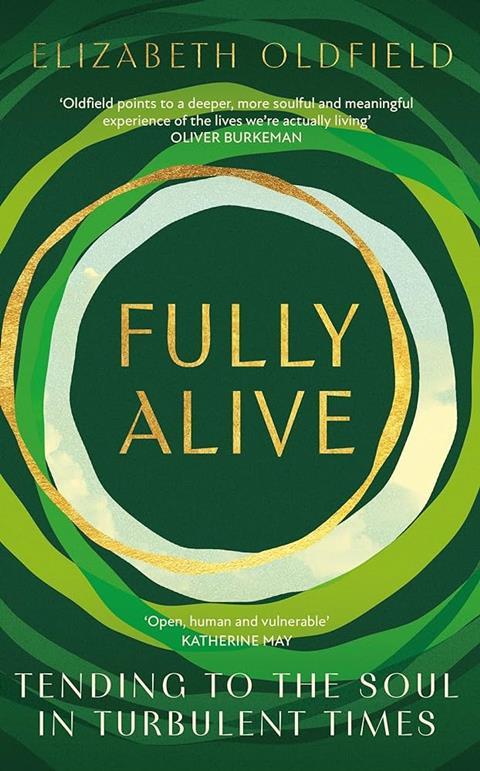Elizabeth Oldfield’s new book is a non-patronising attempt to explain why Christianity is more relevant than ever in the modern life. It the ideal book for Christians and non-Christians alike says Emma Fowle

When I saw that the recommendation on the inside front cover of Elizabeth Oldfield’s Fully Alive (Hodder & Stoughton) was written by Francis Spufford, I knew I was going to like it.
You could once count handfuls of Christian writers among those publishing successful, mainstream works (including CS Lewis, JRR Tolkien, Graham Greene, Evelyn Waugh and TS Eliot). But today writing that transcends the boundaries between secular and spiritual is few and far between.
In 2013, Spufford, who is best known for his fiction writing, decided to address the dearth of accessible explorations of Christian faith being published into the mainstream. Unapologetic: Why, despite everything, Christianity can still make surprising emotional sense (Faber & Faber) was not aimed at the choir. Using “slightly sweary” language (as Spufford explained to this magazine) it was his attempt to write about Christian faith in a way that could be understood by those who didn’t share his worldview.
This is an elegantly written book that holds a mirror up to the many problems of modern life
Now, nearly a decade later, Oldfield has taken on the mantel. Like Spufford’s offering before it, Fully Alive: Tending to the soul in turbulent times is not afraid of the odd bad word. Nor is it willing to omit or skirt around issues that some Christians (and Christian books) may wish to avoid for fear of admitting that (whisper it!) even people who follow Jesus are not perfect. Or have desires. Or sometimes shout at their children.
In a world in which the temptation to curate an image of oneself has perhaps never been so keenly felt, Fully Alive sees Oldfield lay it all out there. Drawing on personal experience, she writes about her own journey of faith and her quest to live a “good, whole and fulfilling life”.
A journey to more
Using the structure of the seven deadly sins, each chapter offers a positive opposite to Tertullian’s ancient list of vices, updated for a modern world. In order to tackle envy, for example, the reader is invited to journey “from status anxiety to Belovedness”. In the chapter on wrath, Oldfield tackles the fracturing of our society and the prevalence of cancel culture, offering that the alternative to polarisation is the Christian call to peace making.
The chapter on gluttony takes a hard look at how and why we numb our pain, and invites us into an authentic experience of the ecstasy of God (as good an apologetic for the charismatic experience as I have ever read). In ‘Lust’, Oldfield offers a convincingly straightforward critique of porn, hook-up culture and objectification, while sharing honestly of her own experiences.
Elsewhere, she tackles greed and gratitude, distraction and attention, and individualism versus living in community (this last subject recently generated headlines about middle class communes in The Times).
Shining a light
Bookending these are an introduction, in which Oldfield shares her own conversion story at a nameless youth festival as a teen, and a conclusion, entitled “The G Bomb”. Aiming to make the book accessible to those who consider themselves “allergic” to faith, this is an intentional attempt to leave the good stuff til last. In doing so, the author’s stated aim is that the previous chapters act as an “antihistamine”, preventing the violent reaction so often caused when Jesus is suggested as the answer to any of the questions that plague our souls.
Fully Alive is not afraid of the odd bad word
The result is an elegantly written and deeply honest book that holds a mirror up to the many problems of modern life while, at the same time, shining a beautifully winsome light on the good news of Jesus Christ.
If you are looking for an accessible, down-to-earth book for a sceptical friend, I would highly recommend it. If you are looking for a book that explains the claims of the Christian faith in a way that is non-patronising and understandable for those outside it, again: go out and buy this book.
And if you’re already in the choir, don’t worry: Oldfield won’t be preaching at you. But, as we journey together through life’s infinite selection of trials and tests, attempting to understand and follow our saviour to something more, she will make you feel seen and understood. And that’s what a good book should do.







































No comments yet